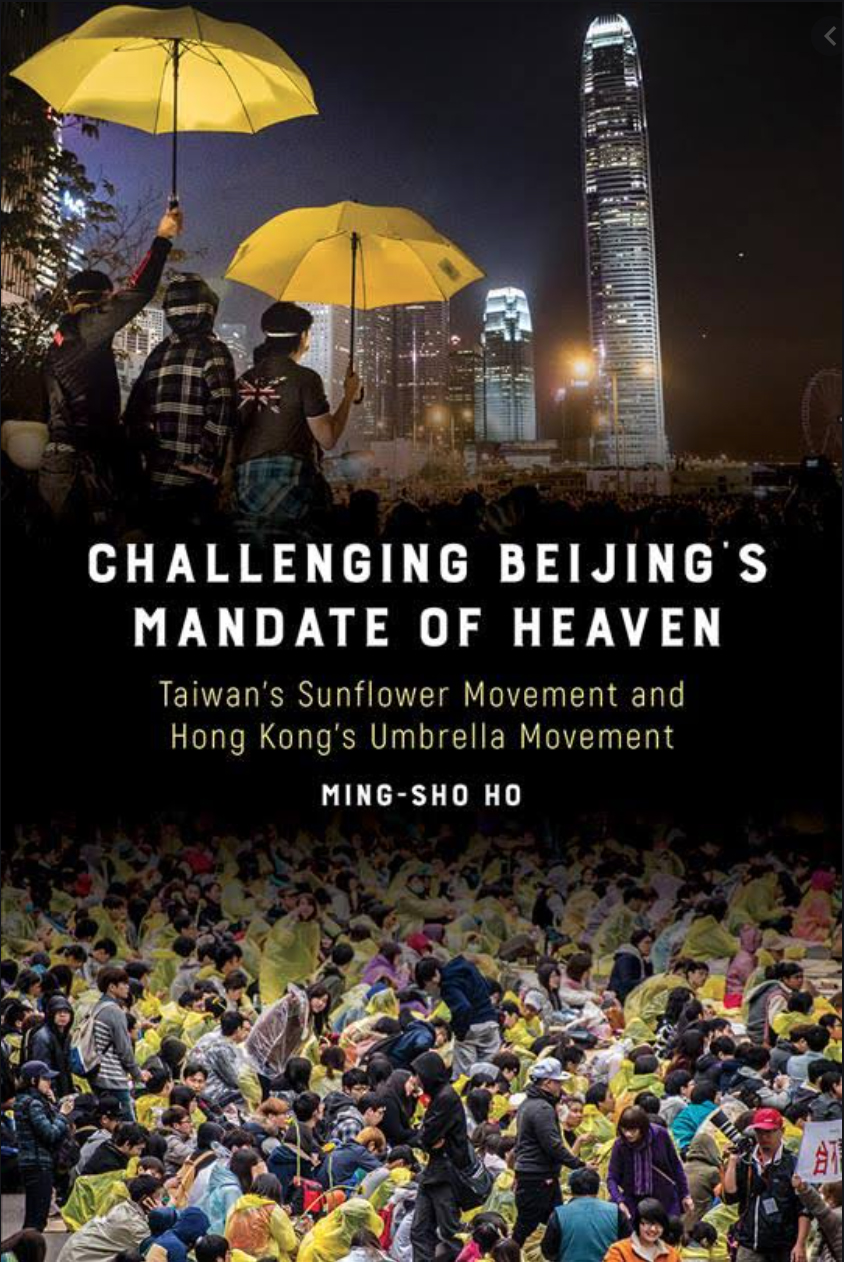- Regions
- Topics
- Publications
- Activities
- About
- Donate
-
Menú de navegación
There is no Secondary Navigation available for the current site.
[Ming-Sho Ho, Challenging Beijing's Mandate of Heaven. Taiwan's Sunflower and Hong Kong's Umbrella Movement. Temple University Press. Philadelphia, 2019. 230 p.]
review / Claudia López
 Taiwan's Sunflower Movement and Hong Kong's Umbrella Movement achieved international notoriety during 2014, when they challenged the Chinese regime's 'Mandate of Heaven', to use the image that gives degree scroll to the book. The book analyses the origins, processes and also the outcomes of both protests, at a time of consolidation of the rise of the People's Republic of China. Challenging Beijing's Mandate of Heaven provides a detailed overview of where, why and how these movements came into being and achieved relevance.
Taiwan's Sunflower Movement and Hong Kong's Umbrella Movement achieved international notoriety during 2014, when they challenged the Chinese regime's 'Mandate of Heaven', to use the image that gives degree scroll to the book. The book analyses the origins, processes and also the outcomes of both protests, at a time of consolidation of the rise of the People's Republic of China. Challenging Beijing's Mandate of Heaven provides a detailed overview of where, why and how these movements came into being and achieved relevance.
Taiwan's Sunflower Movement developed in March and April 2014, when citizen demonstrations protested against the approval of a free trade agreement with China. Between September and December of the same year, the Umbrella Movement staged 79 days of protests in Hong Kong demanding universal suffrage to elect the highest authority in this enclave of special status within China. These protests attracted international attention for their peaceful and civilised organisation.
Ming-Sho Ho begins by describing the historical background of Taiwan and Hong Kong from their Chinese origins. He then analyses the status of the two territories so far this century, when Taiwan and Hong Kong have begun to face increased pressure from China. It also reviews the similar economic circumstances that produced the two waves of youth revolts. The second part of the book analyses the two movements: the voluntary contributions, the decision-making process and its improvisation, the internal power shift, the political influences and the challenges of the initiative. The book includes appendices with the list of Taiwanese and Hong Kong people interviewed and the methodology used for the analysis of the protests.
Ming-Sho Ho was born in 1973 in Taiwan and has been a close observer of the island's social movements; during his time as a student of doctorate in Hong Kong he also closely followed the political discussion in the former British colony. He is currently researching initiatives for promote renewable energy in East Asian nations.
Being from Taiwan gave him access to the Sunflower Movement and allowed him to build close relationships with several of its key activists. He was able to witness some of the students' internal meetings and conduct in-depth interviews with students, leaders, politicians, NGO activists, journalists and university professors. This provided him with a variety of sources for his research.
Although they are two territories with different characteristics - Hong Kong is under the sovereignty of the People's Republic of China, but enjoys autonomy management assistant; Taiwan remains independent, but its statehood is challenged - both represent a strategic challenge for Beijing in its consolidation as a superpower.
The author's sympathy for these two movements is obvious throughout the book, as is his admiration for the risk taken by these student groups, especially in Hong Kong, where many of them were convicted of 'public nuisance' and 'disturbing the peace' and, in many cases, sentenced to more than a year in prison.
The two movements had a similar beginning and a similar development beginning, but each ended in a very different way. In Taiwan, thanks to the initiative, the free trade agreement with China failed and was withdrawn, and the protesters were able to call hold a farewell rally to celebrate this victory. In Hong Kong, police repression succeeded in stifling the protest and a final massive raid brought a disappointing end for the protesters. However, it is possible that without the experience of those mobilisations, the new student reaction that throughout 2019 and early 2020 in Hong Kong has put the highest Chinese authorities on the ropes would not have been possible.